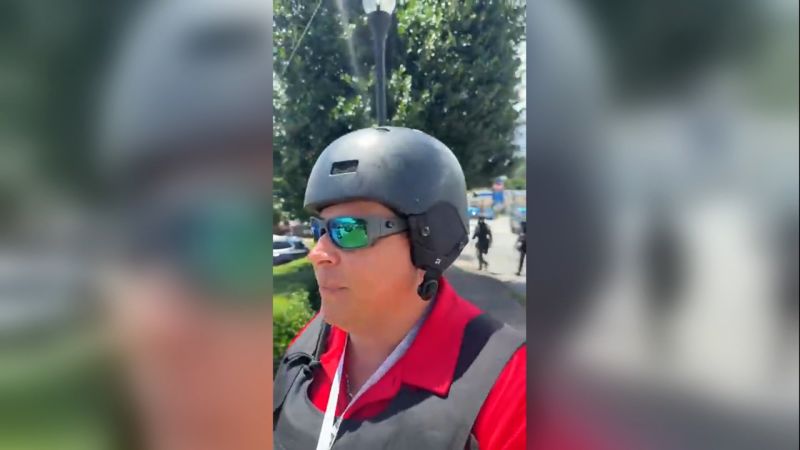An immigration judge in Georgia has ordered the release of Salvadoran journalist Mario Guevara on bail, allowing him to continue his immigration process outside of custody. Guevara, a prominent Spanish-language journalist and live-streamer, had been detained by Immigration and Customs Enforcement (ICE) for nearly two weeks. His release was confirmed by a relative to CNN.
Guevara, who immigrated to the United States from El Salvador in 2004, was arrested on June 14 while covering a “No Kings” protest near Atlanta. He faced charges of improperly entering a pedestrian roadway, obstruction of law enforcement officers, and unlawful assembly. Despite wearing a press vest and credentials, he was detained. Although the charges were dismissed, ICE sought to keep him in custody due to his immigration status. His legal team has stated that Guevara is authorized to work in the U.S., though he lacks a permanent resident card.
The Context Surrounding Guevara’s Arrest
The arrest of Mario Guevara has drawn significant attention, particularly as he was identified by the U.S. Press Freedom Tracker as the only journalist in custody in the country at the time. Guevara has built a substantial following in Georgia, known for his comprehensive coverage of immigration enforcement. His work often involved live-streaming arrests and their aftermath, a practice that has garnered both acclaim and scrutiny.
The Committee to Protect Journalists (CPJ) has been vocal in its support for Guevara, with a representative attending his hearing. The CPJ’s Katherine Jacobsen remarked on the positive outcome of his release but expressed concern over the prosecution’s arguments that Guevara’s reporting posed a community threat. Jacobsen emphasized the troubling implications of his arrest, noting,
“The fact that Guevara was arrested while exercising his First Amendment rights as a journalist and was subsequently held for over two weeks by various law enforcement bodies sends an alarming message to the media.”
Reactions and Implications
Guevara’s wife, Miriam Sáenz de Guevara, expressed relief at the judge’s decision, thanking his legal team for their efforts. She noted that arrangements were being made for Guevara’s return home. The CPJ’s involvement underscores the broader concerns about press freedom and the treatment of journalists, particularly those covering contentious issues such as immigration.
Meanwhile, the case has sparked discussions about the intersection of immigration enforcement and press freedom. Legal experts and advocates argue that Guevara’s detention highlights potential overreach by law enforcement agencies. The implications of his arrest and subsequent release are significant, as they may influence how similar cases are handled in the future.
Looking Ahead
As Guevara returns to his work and family, his case continues to unfold. The legal proceedings will likely attract further attention, especially from media rights organizations and immigration advocates. The outcome could set a precedent for how journalists, particularly those without permanent residency, are treated in the context of immigration enforcement.
Guevara’s situation also brings to light the challenges faced by journalists covering sensitive topics. As he resumes his reporting, the media community will be watching closely, both in support of his work and as a gauge of the current climate for press freedom in the United States.
The broader implications of Guevara’s case remain to be seen, but it undeniably highlights the delicate balance between national security, immigration policy, and the rights of the press. As the story develops, it serves as a reminder of the vital role journalists play in informing the public and the potential risks they face in doing so.
About The Author
 JPMorgan Strategist: Worst-Case Tariff Scenario Averted, Markets Stabilize
JPMorgan Strategist: Worst-Case Tariff Scenario Averted, Markets Stabilize Hidden Bias in HIV Testing Leaves Women and Older Adults at Risk in Spain
Hidden Bias in HIV Testing Leaves Women and Older Adults at Risk in Spain Federal Judge Rules HHS Layoffs Likely Unlawful, Citing Potential Harm
Federal Judge Rules HHS Layoffs Likely Unlawful, Citing Potential Harm Primo Brands Sets Date for Q2 2025 Earnings Release and Conference Call
Primo Brands Sets Date for Q2 2025 Earnings Release and Conference Call Patrick Industries to Present at CJS Securities Conference Amid Market Growth
Patrick Industries to Present at CJS Securities Conference Amid Market Growth